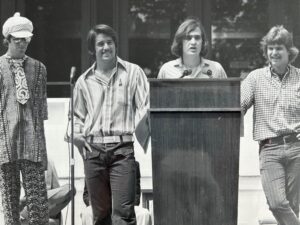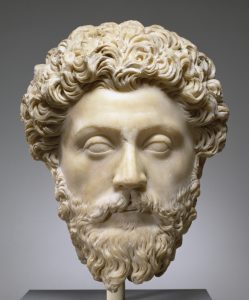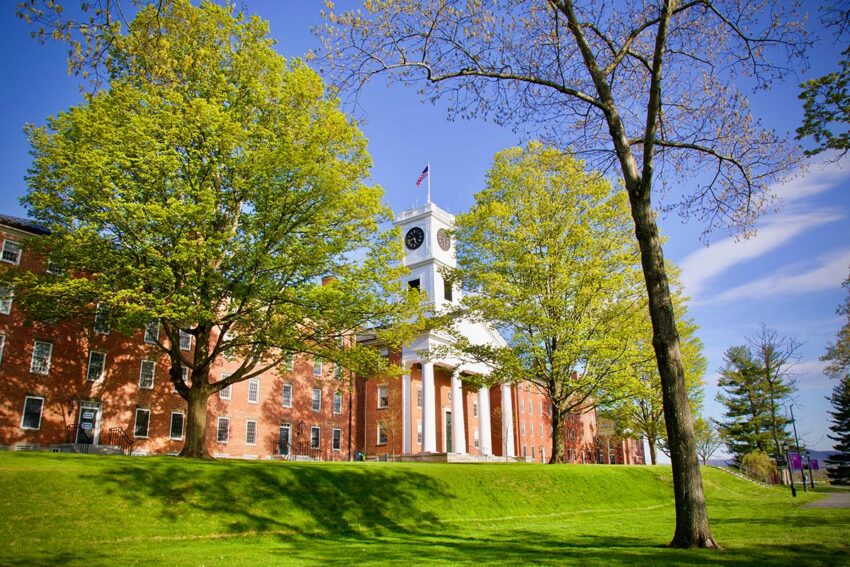Way back in May of 1974, I graduated from Amherst College.
It was a memorable day, including joining three of best friends on the podium for a goofy commencement address to our fellow grads and their parents. That’s me, second from the left, with the telltale 1970s white belt.
And like so many of us back then, I couldn’t imagine someday being 30 years old much less, egads!, 71 years old. But as our 50th college reunion is approaching, our class secretary has asked each of us to draft an essay looking back on those 50 years.
As I do so often, I turn to the meditations of Marcus Aurelius, who–as you will see below–has good advice for the Class of 1974 and all of the rest of you.
Here is my essay:
Fifty years ago, back when we graduated, I was just one of many of us with visions of grandeur–a vision of the future defined by illustrious careers and achievements, be it in law or business or medicine or literature or science or whatever field we chose. Indeed, I can remember our early reunions, where it seemed many of us wanted to make sure that the rest of our classmates knew about our career successes.
But for me, and perhaps many of those classmates, as they years passed, and despite whatever triumphs we may have achieved, one of the meditations of Marcus Aurelius became more and more relevant:
The man whose heart is palpitating for fame after death does not reflect that out of all those who remember him every one will himself soon be dead also, and in the course of time the next generation after that, until in the end, after flaring and sinking by turns, the final spark of memory is quenched. Furthermore, even supposing that those who remember you were never to die at all, yet what is that to you? Clearly in your grave, nothing. Surely, then, you are making an inopportune rejection of what Nature had given you today, if all your mind is set on what men will say of you tomorrow.

And thus gradually I came to realize—as perhaps many of you have —that family and friends, and the time we spend with them and the experiences we share with them, are far more important than careers. As most of us have learned by now, there is no correlation between wealth and happiness or career success and satisfaction. Yes, I have published more than a dozen novels, but my proudest literary achievement was when my kids took one of my books to elementary school for show-and-tell. Yes, I have represented Fortune 500 companies and celebrities in high-profile lawsuits, but the most satisfying matter I ever handled was quietly forcing a local automobile dealer to honor the repair warranty on the broken car of a pro bono client that my children adored.
So while I hope to stay true to my religion’s teachings of Tikkun Olam, which is the Jewish duty to help repair the world, as we approach our 50th Reunion, I am a grateful Amherst alum—grateful for my wife Margi of nearly 50 years, grateful for my 5 grown children, grateful for my 10 grandchildren, and grateful for all of my friends, including many of you from our college days. And, of course, grateful for those four wonderful and inspirational years at Amherst College.

Excellent summary of your 50th reunion thoughts. I read this just after I finished another of your excellent books, “Face Value.”
Peter
Why has it taken me so long to find your blog? Bookmarked now. I’m a big fan of everything you write, Michael.